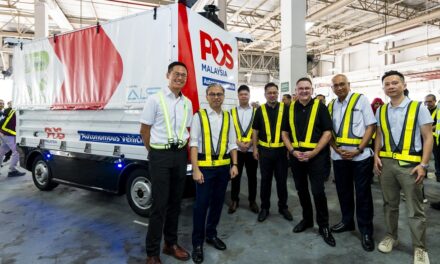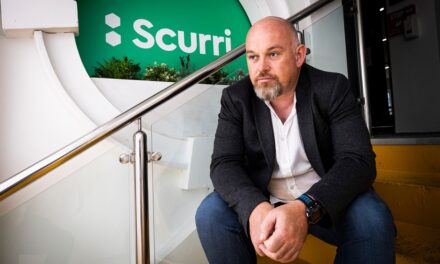
Deutsche Post DHL’s Q4 loss narrows
Deutsche Post DHL announced that its Q4 loss for 2009 narrowed to €283m as a result of cost savings programmes. The company made a loss of €3bn in the Q4 of 2008, whilst revenues for the October to December 2009 period stood at €12.4bn, compared to €14bn for the same period for 2008.
A generated underlying EBIT of €1.47bn in the full year 2009 was recorded, exceeding its November forecast of at least €1.35bn.
A company statement said:
One of the key contributors to this positive development was the introduction of the ‘IndEx’ program at the end of 2008: It generated cost savings of €1.1bn – one year ahead of the original schedule and €100m ahead of the last forecast for the end of 2009.
These efficiency increases also significantly helped Deutsche Post DHL to achieve its consolidated net profit target. Following a loss in 2008, the full-year consolidated net profit rose to €644m in 2009. Deutsche Post DHL’s 2009 capital expenditure of €1.17bn also fully met expectations.
“We have successfully managed the repercussions of the economic crisis and exceeded our targets for 2009,” said Frank Appel, CEO of Deutsche Post DHL. “Thanks to strict cost management and the consistent implementation of our Strategy 2015, we are now able to benefit overproportionally from the accelerating global economic recovery.”
Outlook: Sustainable improvement of profitability
For this year, the Group foresees a moderate recovery in global transport volumes. Against this backdrop, Deutsche Post DHL expects underlying EBIT to total between €1.6bn and €1.9bn in 2010. In a reflection of the Group’s two-pillar strategy announced last year, the DHL Divisions and the MAIL Division are to make roughly equal contributions to earnings for the first time: While the MAIL Division is expected to generate earnings between €1bn and €1.2bn, the contribution by DHL is expected to total between €1.0bn and €1.1bn. Corporate Center expenditures are forecast at around €400m.
As a result of an anticipated significant decline in non-recurring items Deutsche Post DHL’s reported EBIT is expected to be considerably above last year’s level. Consolidated net profit should further improve compared to 2009. “We are optimistic about the future, even though many uncertainties remain about the strength of the economic recovery as well as about political and regulatory issues,” Appel added. “We will move ahead as planned this year and sustainably improve the Group’s profitability with innovative products, high service levels and the ongoing development of customer-oriented solutions.” The Group expects the positive earnings trend to continue in 2011.
Business year 2009: Increase in earnings despite global economic crisis
CFO Larry Rosen: “This long-term oriented dividend policy with its focus on sustainability is an important message to the capital market”.
At Deutsche Post DHL, the global economic crisis caused a significant decrease in transport volumes last year triggering a 15.2% drop in revenues to €46.2bn. However, successful cost cutting across all businesses, substantially lower restructuring expenses as well as the planned reduction of losses from the US EXPRESS business helped mitigate the impact on the Group’s profitability. Reported EBIT of €231m for 2009 thus substantially exceeded the €966m loss incurred in 2008.
The 2009 result includes losses from the Arcandor insolvency and costs related to onerous contracts amounting to a total of €344m. In addition to the operational improvements, positive effects from the Postbank sale as well as lower taxes led to an increase of the consolidated net profit to €644m compared to a loss of €1.7bn in 2008. As a result, earnings per share climbed from €-1.40 in the previous year to €0.53 in 2009.
Based on last year’s positive results and the Group’s confidence in the future, the Board of Management and the Supervisory Board will propose a dividend of €0.60 to the Annual General Meeting on April 28, 2010, maintaining last year’s level. In addition, Deutsche Post DHL’s Supervisory Board in its meeting yesterday appointed Hermann Ude and Bruce Edwards to the Board of Management for another five years starting 2011. Ude (48) will continue to be in charge of the Corporate Division “Global Forwarding, Freight” while Bruce Edwards (54) will remain in charge of the Corporate Division “Supply Chain”. Both were first appointed to the Board of Management in March 2008.
Financial strategy: Focus on stability and flexibility
As in the past, ensuring financial stability and flexibility will remain a top priority for Deutsche Post DHL. As an appropriate balance sheet structure is paramount to achieving this objective, the Group’s new financial strategy will predominantly focus on the firm’s credit rating: Deutsche Post DHL currently holds a BBB+ rating from Standard & Poor’s and a Baa1 from Moody’s. The company seeks to retain these rating levels long-term. The financial strategy also includes a specific target for the long-term dividend policy: going forward, the firm plans to distribute 40% to 60% of its consolidated net profit to shareholders.
“This long-term oriented dividend policy with its focus on sustainability is an important message to the capital market, showcasing our efforts to further increase our attractiveness to investors,” explained Deutsche Post DHL Chief Financial Officer Larry Rosen. “At the same time, our financial strategy will ensure that we possess the necessary financial strength and flexibility to further grow our operations and thus successfully implement our Strategy 2015.”
Fourth quarter 2009: Negative revenue trend halted
Ensuring financial stability and flexibility will remain a top priority for the Group.
During the fourth quarter, the Group was able to halt the negative revenue trend created by weakened demand and reduced transport rates. The Group increased quarter-on-quarter revenues for the second time in a row. Year-on-year, though, revenues fell by 11.6% to €12.4bn. At €-283m, the consolidated net profit was considerably better than the previous year’s level. A loss of more than €3bn was recorded in the final quarter of 2008. At the same time, earnings per share rose from €-2.64 to €-0.24. The loss of the final quarter in 2009 is wholly attributable to high restructuring costs, expenditures related to the Arcandor insolvency and costs related to onerous contracts.
MAIL Division: Market share maintained
During the past year, the MAIL Division not only was affected by the global economic crisis, but was also confronted with the increasing substitution of physical mail by electronic media. As a result, revenues were 4.9% below the previous year’s level, totalling €13.7bn. Thanks to its intense customer focus and its high-quality service, Deutsche Post maintained its share of this shrinking market at 87.2%. In addition, comprehensive cost-cutting measures cushioned the impact from higher wages and losses related to the Arcandor insolvency on the division’s profitability. For fiscal year 2009, underlying EBIT fell by 14.0% to €1.4bn. In the fourth quarter, though, it rose by 7.4% despite the continuing decline in revenues.
EXPRESS Division: Profitability improved
Lower volumes also impacted the EXPRESS Division. During the second half of the year, however, trade volumes began to rise sequentially. The fourth quarter saw a slight recovery of the Time Definite Domestic and Day Definite Domestic product groups outside the US Nonetheless, revenues for fiscal year 2009 fell by 24.4% year-on-year to €10.3bn.
The main causes of this decrease were the Group’s exit from the domestic express business in the US along with exchange rate fluctuations and lower revenues from fuel surcharges. Outside the US, revenues adjusted for acquisitions and exchange rate fluctuations were only 11.8% below the previous year’s level. The smallest drop in revenues was reported by the Asia Pacific region at 6.0% to €2.6bn.
In Europe and the EEMEA region (Eastern Europe, the Middle East and Africa), revenues fell by 15.5% and 10.4%, respectively, to €5.6bn and €1.1bn. In the Americas region, which includes Latin America and the Caribbean as well as Canada and the US, revenues decreased by 58.6%. Excluding the US, revenues in the region fell by 14.8% in the past year.
Unlike the revenue trend, the division’s profitability climbed considerably in the past year. Thanks to strict cost management, underlying EBIT was 45.1% above the previous year’s level at €238m. A key reason for this positive development was the significant reduction in losses previously incurred in the US The target of reducing the annualized loss to less than $400m by the fourth quarter has been achieved. In the other regions, underlying EBIT totalled €692m, compared to €1.1bn in the previous year.
GLOBAL FORWARDING, FREIGHT Division: Positive trend
The decline in world trade levels resulted in double-digit decreases in transport volumes in the air and ocean freight markets. Nonetheless, the GLOBAL FORWARDING, FREIGHT Division was able to sequentially increase volumes each quarter during the year. Marketing and sales efforts were increasingly successful, particularly in the areas of life sciences and consumer goods. Due to the initial economic recovery, air freight volumes rose year-on-year for the first time in six quarters during the fourth quarter. In fiscal year 2009, DHL was able to maintain or even expand its market share in the international air and ocean freight markets and in European road transport.
However, as a result of the general decline in freight volumes, lower fuel surcharges and reduced freight rates, revenues in this division were 23.3% lower year-on-year at €10.9bn. Thanks to systematic cost management including noteworthy productivity gains, the effect on the division’s profitability could be cushioned. The underlying EBIT decreased from €403m in 2008 to €272m.
SUPPLY CHAIN Division: Market position further strengthened
Despite the difficult market conditions, the contract logistics business of Deutsche Post DHL was able to further expand its market position in 2009. Two key reasons for this positive development were new business contracts worth €1.1bn and a continuing high contract-renewal rate of 90%. Nonetheless, revenues fell by 8.8% to €12.5bn. This decrease resulted from substantial negative currency translation effects and the company’s own decision to decline renewal of underperforming contracts or to terminate them prematurely.
With the help of cost-cutting measures, the impact of the economic crisis on the division’s profitability could be held in check. While underlying EBIT was indeed €-121m, this loss was exclusively related to charges totalling €213m that were connected with the insolvency of Arcandor. Excluding this effect and additional one-time costs for onerous contracts, underlying EBIT in this division would have been near the previous year’s total of €196m.












